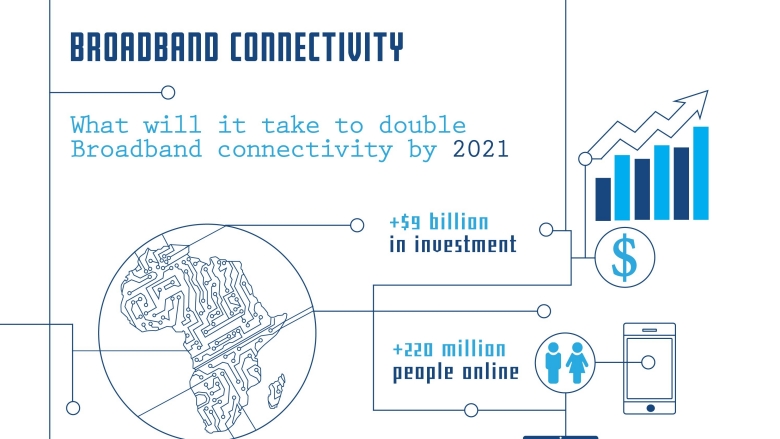WASHINGTON, October 17, 2019— What will it take for Africa to connect an additional 1.1 billion people online by 2030 and bridge the connectivity gap? A new report launched today at the World Bank/IMF Annual Meetings estimates the cost of closing the digital divide at around $100 billion or close to US$9 billion a year. The challenge shouldn’t be underestimated. In Sub-Saharan Africa, about a third of the population remains out of reach of 3G networks compared to about 2 percent in North Africa.
Achieving this target is a significant undertaking which will require the deployment of nearly 250,000 new 4G base stations and at least 250,000 kilometers of fiber across the region, the report says. Connecting the unconnected would also require rolling out innovative and alternative solutions (Wi-Fi, satellites, etc.) to reach the nearly 100 million people that live in remote, rural areas currently out of reach of traditional mobile networks.
An infrastructure challenge but not only

For the most part, achieving universal access to broadband connectivity is an infrastructure challenge with nearly 80% of all required investments directly tied to the need to roll out and maintain broadband networks. But investing in good quality, affordable and reliable infrastructure won’t be enough, notes the report: An additional $18 billion will be needed to develop a digital ecosystem, which means investing in basic digital skills and local content to support development opportunities, including for women and girls. Moreover, to reach the 36% illiterate population, voice-based solutions and applications should also be built.
Another $2.5 billion should be mobilized for policy and regulatory reforms to create market conditions fostering innovation, entrepreneurship and technology deployment. Achieving universal, affordable access on the continent also means lowering the cost of mobile devices through targeted public policies and market measures knowing that, in 2018, the median cost of an entry-level internet-enabled device in Africa was 40% of monthly income. Working with the private sector to lower manufacturing and distribution costs for devices will be of paramount importance, the report says.
The report makes it clear that no single actor acting alone will be able to meet the 2030 target and carry the burden of a $100 billion investment funding requirement but provides a roadmap and an action plan to achieve this ambitious goal.

All stakeholders must come together and collaborate to realize universally affordable access to the internet for all Africans. This includes: the African Union and regional economic communities, African governments, sector regulators, multilateral and regional development banks, the United Nations and other development agencies, the private sector (both national and foreign); and civil society groups and nongovernmental organizations.
Download the full report:
https://www.broadbandcommission.org/Documents/working-groups/DigitalMoonshotforAfrica_Report.pdf

